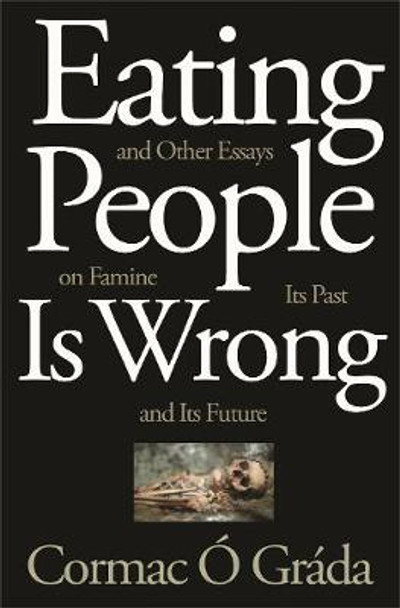Description
New perspectives on the history of famine-and the possibility of a famine-free world
Famines are becoming smaller and rarer, but optimism about the possibility of a famine-free future must be tempered by the threat of global warming. That is just one of the arguments that Cormac O Grada, one of the world's leading authorities on the history and economics of famine, develops in this wide-ranging book, which provides crucial new perspectives on key questions raised by famines around the globe between the seventeenth and twenty-first centuries.
The book begins with a taboo topic. O Grada argues that cannibalism, while by no means a universal feature of famines and never responsible for more than a tiny proportion of famine deaths, has probably been more common during very severe famines than previously thought. The book goes on to offer new interpretations of two of the twentieth century's most notorious and controversial famines, the Great Bengal Famine and the Chinese Great Leap Forward Famine. O Grada questions the standard view of the Bengal Famine as a perfect example of market failure, arguing instead that the primary cause was the unwillingness of colonial rulers to divert food from their war effort. The book also addresses the role played by traders and speculators during famines more generally, invoking evidence from famines in France, Ireland, Finland, Malawi, Niger, and Somalia since the 1600s, and overturning Adam Smith's claim that government attempts to solve food shortages always cause famines.
Thought-provoking and important, this is essential reading for historians, economists, demographers, and anyone else who is interested in the history and possible future of famine.
About the Author
Cormac O Grada is professor emeritus of economics at University College Dublin. His books include Famine: A Short History and Black '47 and Beyond: The Great Irish Famine in History, Economy, and Memory (both Princeton).
Reviews
"One of Choice's Outstanding Academic Titles for 2015"
"[I]ts final chapter offers salient discussion of future possibilities and constraints for food security."---Liz Young, Times Higher Education
"This book is written in calm prose, but its message is urgent: continue as we are and poverty will grow on our doorsteps."---Danny Dorling, Times Higher Education
"The Irish economist Cormac O Gra da has written a rarity: a coolly rational, cautiously cheerful book about the most viscerally upsetting subject imaginable, mass death from hunger. . . .For O Gra da, perhaps the world's expert on the history and economics of famine, now is the time to understand this long-standing terror."---Charles C. Mann, Pacific Standard
"The breadth of primary and secondary resources referenced is notable throughout, and this excellent book by a leading scholar is accessible to all readers." * Choice *
"Cormac O Grada knows more than most people about famines, historical and modern, and his short book of essays, Eating People is Wrong, is superb."---Diane Coyle, Enlightened Economist
"The overriding impression one gets from reading Cormac O Grada's latest, brilliant book is that famines the world over are an ugly human stain."---David Nally, Irish Times
"Dealing with some of the most horrendous aspects of famine, the five essays collected here are meticulously scholarly and at the same time arrestingly vivid."---John Gray, New Statesman
"O Grada's book offers a sobering reminder of the importance of making judgments based on good data and unhindered by ideological filters."---Douglas Gollin, Foreign Affairs
Book Information
ISBN 9780691210315
Author Cormac O Grada
Format Paperback
Page Count 248
Imprint Princeton University Press
Publisher Princeton University Press




